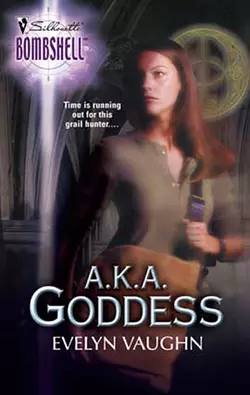A.k.a. Goddess

Evelyn Vaughn
Тип: электронная книга
Жанр: Зарубежные любовные романы
Язык: на английском языке
Стоимость: 153.35 ₽
Статус: В продаже
Издательство: HarperCollins
Дата публикации: 16.04.2024
Отзывы: Пока нет Добавить отзыв
О книге: This wasn′t in my job description….Reporting a break-in, avoiding my overprotective exlover, dodging dangerous men out to kill me…not exactly a typical day for a comparative mythology professor. So how did I, Maggie Sanger, get mixed up in all this?It started with a family legend that connects me to a goddess and charges me with recovering the grail she hid away ages ago. Apparently some powerful people heard the story and are bent on destroying the grail at any cost–including my life. Now I have to find it before the enemy closes in….The Grail Keepers: Going for the Grail with the goddess on their side.